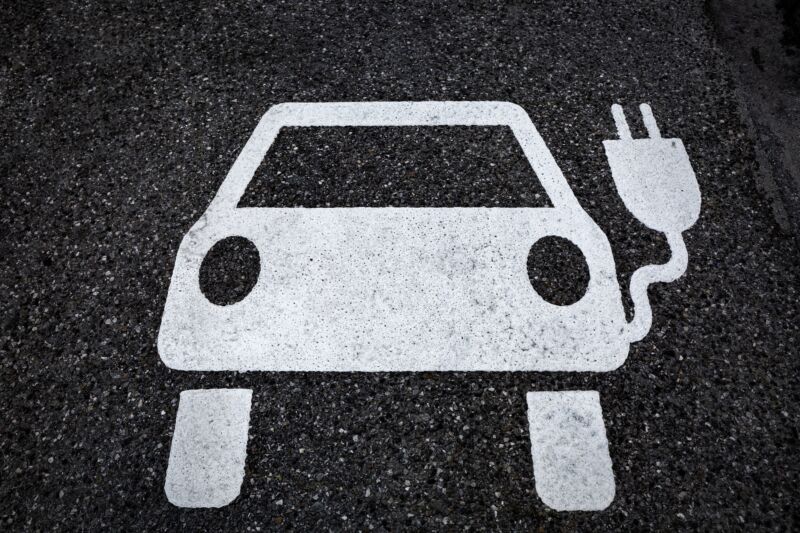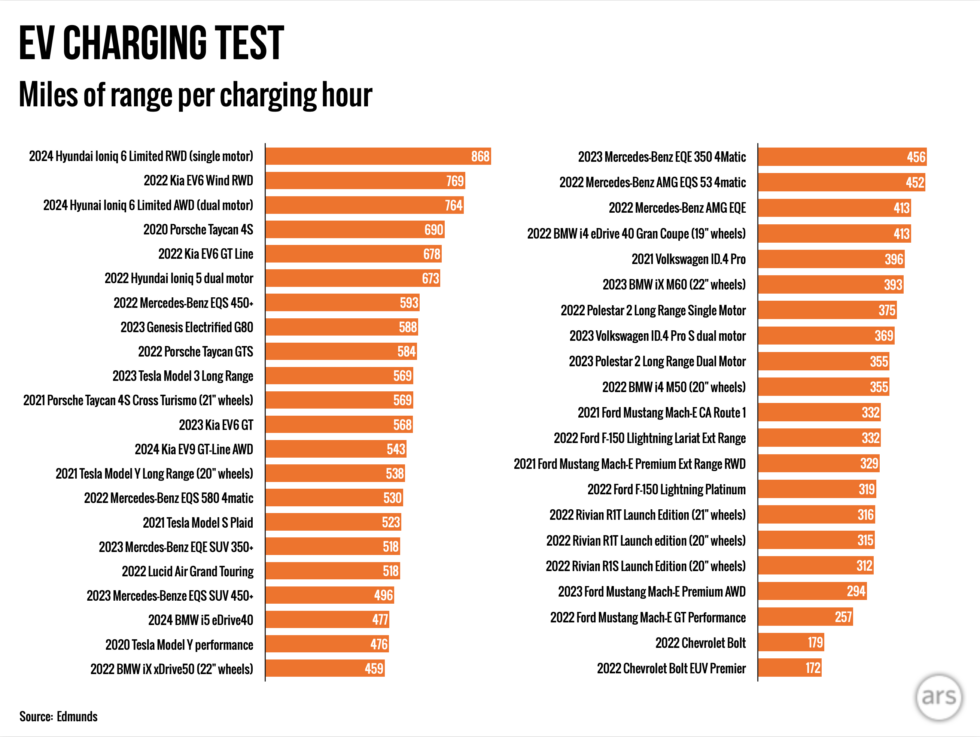
Despite the fact that most of us generally drive short distances when we get in our cars, the time it takes to fast-charge an electric vehicle remains of paramount importance to potential EV buyers. It's hard to blame them—for more than a century, motorists have come to expect short refueling stops, and until someone actually lives with an EV for a while, it can be hard to make that paradigm shift. And of course, not everyone has the ability to slow-charge an EV at home or at work, your author included.
So with that in mind, the consumer advice publication Edmunds decided to test a whole bunch of EVs to find out which one adds the most miles of range in the fewest minutes possible.
Working with the automotive consultancy P3, Edmunds tested 43 different EVs, running down their batteries on its EV range-testing route to calculate the car's efficiency, then fast-charged them from 10 to 80 percent, measuring peak and average charging power and calculating charging losses in the process. Edmunds says it did this because automakers are inconsistent in advertising fast-charging times—some list charge times from 10 to 80 percent, while others simply say their cars can add 100 miles (160 km) of range in a given time.
The Hyundai Ioniq 6 is the fastest fast-charging EV
Based on Edmunds' data, road trip warriors should beat a path to the single-motor Hyundai Ioniq 6. Hyundai's 800 V E-GMP platform (also shared by Kia and Genesis) was designed to be both very efficient and very quick to DC-charge, and Edmunds found that this model could add 868 miles (1,397 km) of range per hour. Put another way, Edmunds found it could add an extra hundred miles of range to the single-motor Ioniq 6 in just under seven minutes, with a peak power of 242 kW and an average charging power of 210 kW. However, the Hyundai did have relatively high charging losses of 9.9 percent.
Advertisement
E-GMP EVs came in at second and third as well—the single-motor Kia EV6 Wind charged at 769 miles (1,238 km) per hour, with the dual-motor Ioniq 6 adding 764 miles (1,230 km) per hour. These EVs also had quite high charging losses, as did Porsche's (also 800 V) Tacans.
Some other EVs had more than 10 percent charging losses, including models from Lucid and Mercedes-Benz, but the real standout was Polestar: both models tested showed 17.1 percent charging losses.
Smaller, cheaper EVs were mostly absent from the tests—there's no Kia Niro, Hyundai Kona, Nissan Leaf, or Mini Cooper SE represented. But the Chevrolet Bolt and its slightly stretched EUV sibling were tested and trailed the pack. The Bolt has many charms, but rapid recharging isn't one of them, and both Bolts peaked at just 54 kW and averaged 46 kW, meaning you'd have to plug one into a fast charger for more than half an hour to add back 100 miles of range.



















